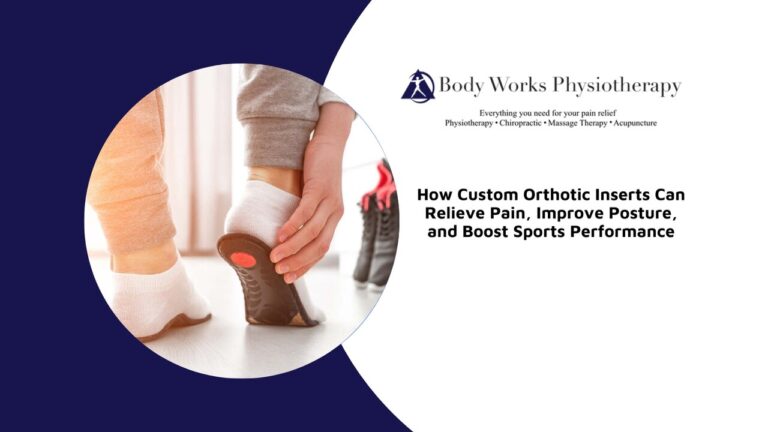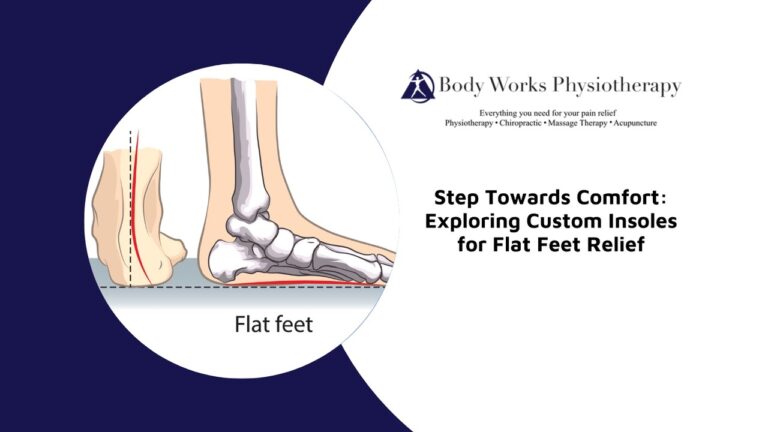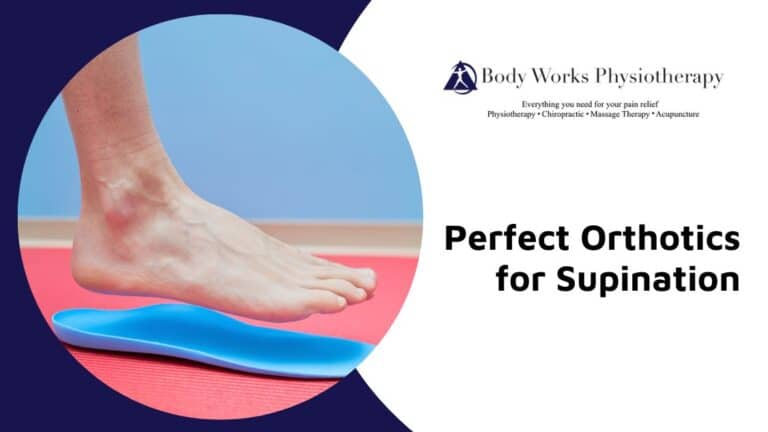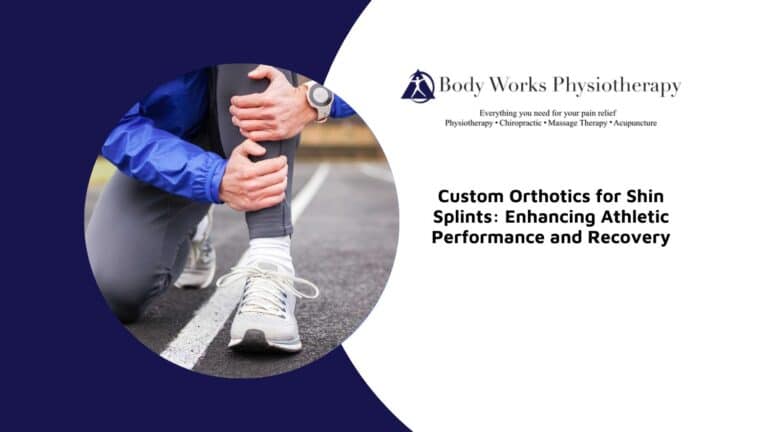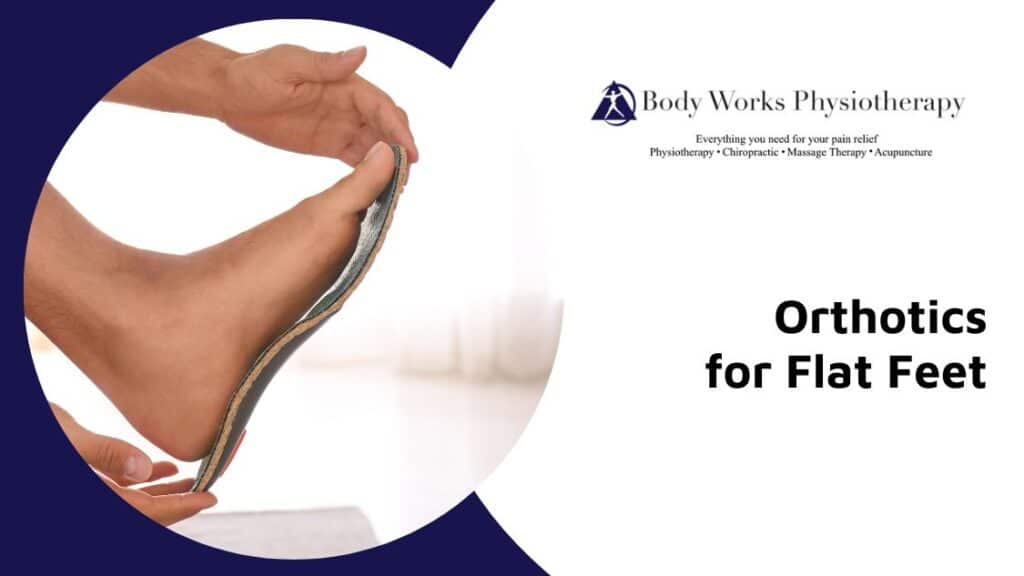
You may not know it, but when you have flat feet, your feet and legs are under continuous tension. You see, with flat feet your foot arches break down because of weakened soft tissues and tendons in your feet, which causes the bones in your feet to press against the side of your shoes and rub against one another. Ouch!
This common foot condition can lead to a number of problems. In addition to the foot pain and leg pain you suffer with flat feet, you might find it hard to balance on one foot, or you might additionally experience Achilles tendon, ankle, knee and pain in the back during your everyday activities.
Many individuals with flat feet require specialized shoes and foot care products to adjust their foot alignment and poor foot mechanics, get rid of discomfort and reduce stress on their joints. Thankfully, there are solutions for flat feet that do not involve the use of unpleasant splints or awkward-looking shoe inserts.
Orthotics are small products that can be used to alleviate a wide range of foot ailments, including flat feet. They can be used in almost any pair of footwear to supply positioning and support by reducing stress on your toes, arches, and heels, so that they don’t flatten when strain is placed on them.
With this added support in place, there is less strain on the ankle and foot tissues, resulting in less pain and more comfy walking. As a matter of fact, wearing orthotics for flat feet is among the most effective methods to handle this chronic condition.
In this blog post, we will go over whatever you need to learn about orthotics for flat feet: how they function, why they’re required, their benefits, and the types offered today. Keep reading for relief from your flat feet pain!
How Do Orthotics Work?
Orthotics are meant to support your entire foot: The bottom of your foot and your arch, your heel, your toes and your whole foot as a unit. The foot is connected to your leg, the knee, the hip, and the back and your entire body in a really precise manner.
The foot functions like a spring: It has a very exact technical function of absorbing shock and after that transferring that shock to the leg to help you take a step. When the foot collapses and drops its arch, that spring function is lost and the foot does not perform its technical function effectively.
Orthotics straighten out the mechanical problems and revive the foot’s spring motion. A good set of orthotic supports will maintain the arch of the foot, lessen pressure and distribute the weight of your body uniformly across the base of your foot.
What are the Advantages of Orthotics for Flat Feet?
You may suffer from discomfort in your feet, knees or ankles if you have flat feet. Orthotics can be utilized to alleviate pain and discomfort, enhance foot mechanics and prevent future foot issues.
You will also have a more comfortable walk: Considering that flat feet can cause discomfort and pain you might be compensating for, an orthotic can help eliminate this.
As a result, you might experience a more comfortable, natural gait. Finally, you’ll enjoy much better foot mechanics and balance: If your arch breaks down, your heel bone will be forced into your forefoot, which will force the toes to push into the top of the foot.
An orthotic can help correct this, translating into much healthier ankle, foot, leg and back tissues and possibly removing tension and discomfort in all those places.
Discovering The Right Orthotics for You
Your physiotherapist or physical therapist will help you choose the most beneficial orthotic supports for your distinct problem. When choosing an orthotic, you should look for the following:
- Stability: Your orthotic ought to provide stability to ensure that your foot does not collapse and you can walk with no balance problems.
- Firmness: Your orthotic should be solid enough to completely support your arch. Preventing the arch from collapsing will relieve discomfort and eliminate the strain that’s placed on your feet’s bones and tissues.
- Comfort: While your orthotic should be solid, it needs to also be comfy enough to wear all day.
- Right size: Your orthotic really should fit well in your shoe, so it doesn’t move. It should also be the correct size for your foot.
Frequently Asked Questions
Does every shoe need an orthotic?
Not always. While some footwear can take advantage of an orthotic, others will not need them.
Are orthotic supports pricey?
The price of an orthotic depends upon the brand name and design you select, as well as the type of orthotic. Customized orthotics are typically priced between $200 and $700 USD. However, you might not have any out-of-pocket expense depending on your insurance coverage and whether or not it pays for orthotics.
Are orthotics uncomfortable?
Not all orthotics are painful. In fact, they are designed to eliminate pain, and many people don’t even recognize they’re using orthotics.
What other conditions can be handled with orthotic supports?
- Overpronation: This is a problem that occurs when the foot rolls inward excessively when walking. Orthotic supports help fix this problem by providing extra arch support.
- Oversupination: In this disorder, your foot rolls outward too much when walking. Adding an extra arch support on the inside of the foot will help rectify oversupination.
- Plantar Fasciitis: Plantar fasciitis is a swelling of the tissues that connect your heel to your toes, causing discomfort in the heel. Orthotics may help repair this by better distributing your body’s weight across the base of the foot, eliminating excess stress on the heel.
Final Thoughts: Are Orthotics for Flat Feet Worth It?
If you suffer from flat feet and experience pain or discomfort, you probably can’t resolve the problem by yourself.
Orthotics can be remarkably effective in minimizing discomfort and pain by upholding the foot’s arch and lining up the foot properly. They likewise help eliminate tension on the tendons and ligaments of the foot, ankle and leg, and better distribute your body’s weight for reduced pain and increased balance.
With the details within this article, you should now understand all you want to know about orthotics for flat feet.
You should also understand why they’re necessary and how they can help reduce foot discomfort. If you suffer from flat feet, make certain you speak with your health professional about whether or not orthotics are the best choice for you.
Give Body Works Physiotherapy a call today and we can begin eliminating your flat feet discomfort. Now scheduling new appointments!


